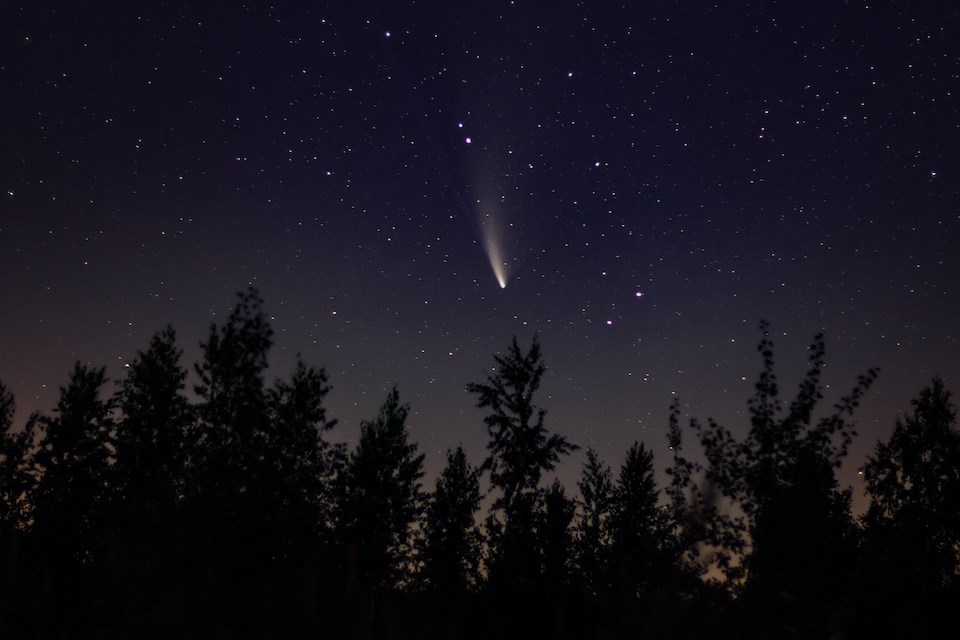An extremely rare and bright comet is passing by Earth but Metro Vancouverites may not be able to see the dazzling display.
Comet 2024 G3 ATLAS has made international headlines for weeks, touted as a "once-in-a-lifetime" celestial event and one of the brightest comets in over two decades.
Rosanna Tilbrook, an astronomer at the H.R. MacMillan Space Centre, tells V.I.A. the comet likely originates from the Oort cloud, a sphere of icy material at our Solar System's most outer edge.
"Scientists believe that C/2024 G3 might have actually visited the Sun before, but won't return again for over half a million years!" she remarks.
The comet has an "orbital period of roughly 160,000 years," according to Space.com, meaning it won't make another pass by our planet for roughly that amount of time. It also passes "exceptionally close" to the sun during its latest orbit - less than 9 million miles - in mid-January 2025.
C/2024 G3's path has also favoured residents of the Southern Hemisphere for months, with nearly its entire track passing through constellations "well south of the celestial equator."
Why is it called C/2024 G3 ATLAS?
The C/2024 G3 ATLAS name is derived from a template scientists use to categorize comets.
Tilbrook says ATLAS is the observatory where the comet was discovered, the "Asteroid Terrestrial-impact Last Alert System," while the "2024" refers to the year it was discovered.
"The first uppercase letter refers to the type of comet- here, the 'C' shows that this one is thought to not be periodic," she notes. "The 'G3' specifies the time of discovery even further, with the letter identifying the half-month of observation (G= first half of April) and the number representing the order of discovery within that half-month.
"So, from the name, we can tell that comet C/2024 G3 ATLAS is a non-periodic comet discovered by the ATLAS survey, and it was the third comet that the survey found in the first half of April 2024."
Will the comet be visible at all in Metro Vancouver?
Unfortunately, locals won't have the best chances of viewing a spellbinding display.
Since it's passing quite close to the sun, the comet will only peek above the horizon roughly half an hour before sunrise and will set about 10 minutes after sunset.
"The comet is also dimming after reaching peak brightness at the start of the week, so it is likely to be washed out in the glow of the Sun," she notes.
It may be possible to see ATLAS for several more days this week and through the end of January, though it will appear less bright.
Tilbrook says keen observers should try to find an unobstructed view of the horizon during these key times if they want to catch a glimpse of the display.
Skywatchers should look to the east-southeast in the morning and southwest in the evening.
"Binoculars could help, but should only be used with extreme caution, as an accidental glimpse at the sun can severely damage your eyes (the same goes for even looking at the sun without optical aid)," she cautions.



